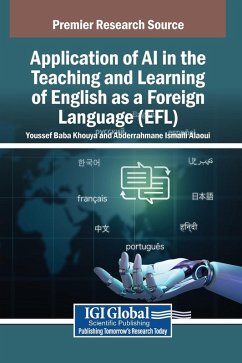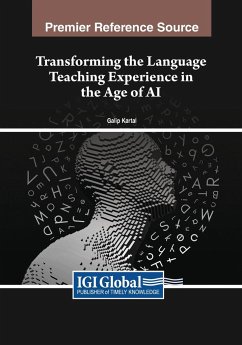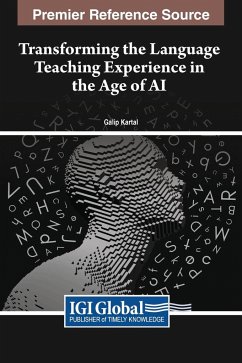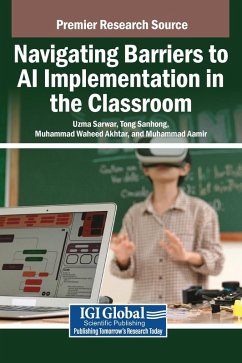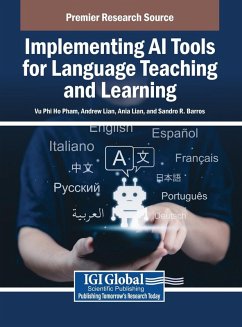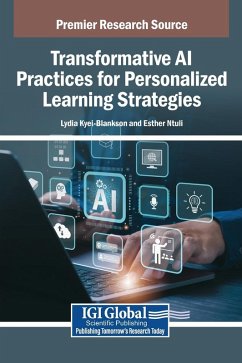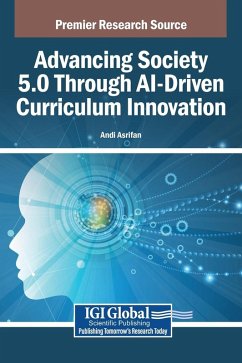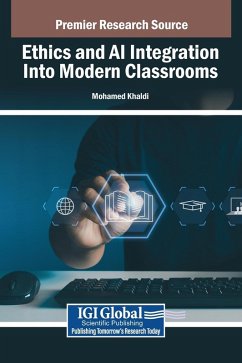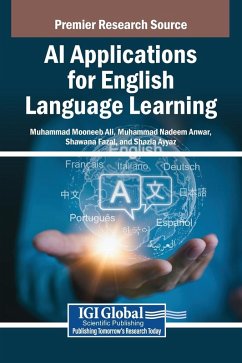
Application of AI in the Teaching and Learning of English as a Foreign Language (EFL)
Versandkostenfrei!
Versandfertig in 1-2 Wochen
112,99 €
inkl. MwSt.

PAYBACK Punkte
56 °P sammeln!
The application of artificial intelligence (AI) in the teaching and learning of English as a Foreign Language (EFL) transforms traditional educational practices by offering more personalized, efficient, and interactive learning experiences. AI-powered tools enable learners to receive instant feedback, engage in conversational practice, and tailor content to individual learning styles. AI facilitates adaptive learning platforms that analyze students' progress and adjust difficulty and content type. For educators, AI can assist in automating administrative tasks, assessing student performance, a...
The application of artificial intelligence (AI) in the teaching and learning of English as a Foreign Language (EFL) transforms traditional educational practices by offering more personalized, efficient, and interactive learning experiences. AI-powered tools enable learners to receive instant feedback, engage in conversational practice, and tailor content to individual learning styles. AI facilitates adaptive learning platforms that analyze students' progress and adjust difficulty and content type. For educators, AI can assist in automating administrative tasks, assessing student performance, and identifying areas for learner support. Further research may enable more data-informed and responsive teaching strategies in EFL contexts. Application of AI in the Teaching and Learning of English as a Foreign Language (EFL) explores the application of AI in the teaching and learning of EFL. Through an applied linguistics lens, this publication examines how AI technologies transform traditional EFL methodologies, addressing the potential of AI to personalize learning, optimize language assessment, and facilitate language acquisition, while also tackling challenges, ethical considerations, and the need for interdisciplinary collaboration. This book covers topics such as ethics and law, lexicology, and gamification, and is a useful resource for educators, linguists and language experts, computer engineers, academicians, researchers, and scientists.



